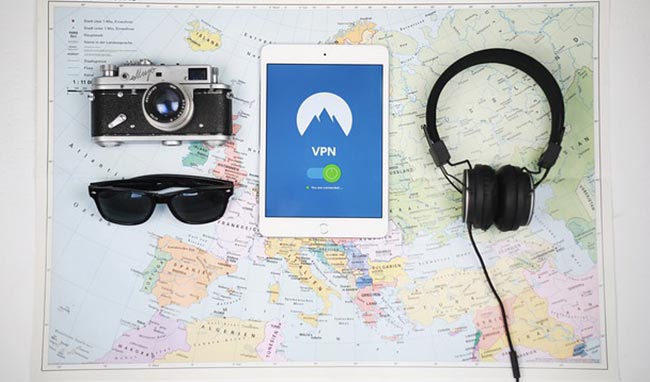In Thailand, vaping is not just a health issue but a legal and cultural one. And despite the growing global popularity of e-cigarettes and vaping devices, Thailand has taken a hard stance against their use, sale, and importation, leading to significant penalties for those caught in violation.
There is considerable confusion online as to whether it's okay to vape in Thailand, with numerous conflicting answers in social media threads. In this post, I'll give you a conclusive explanation on the current situation.
Legal Framework
Thailand’s laws regarding vaping are among the strictest in the world. In 2014, the Thai government banned the importation, sale, and possession of all types of e-cigarettes and refills, mods, and juices, and hookahs, too.
This decision was driven by concerns over public health and the potential appeal of vaping to younger demographics. The law was enforced rigorously, with penalties for those caught vaping, including hefty fines and, in cases of importation and distribution, imprisonment.
However, amendments to Sections 36 and 38 of the Consumer Protection Act 2019 meant that possession could no longer be considered illegal.
This change, however, went largely unnoticed and was not publicized by the media. To date, politicians continue to take a hard line on vaping, and the perception remains one of full prohibition. This has led to confusion over enforcement. Indeed, there are reports of police shaking people down for vaping, issuing fines, and engaging in incidents of extortion.
Here's the proofread version:
Thai embassy websites around the world advise visitors to Thailand that possession and use are prohibited. I quote:
There have been recent incidents of foreign travelers who were unaware of the ban facing an on-the-spot fine or being arrested.
Thus, travelers coming to Thailand are advised not to bring any electronic cigarettes with them, nor any item or equipment associated with e-cigarettes, such as, the liquid used in the device.
Likewise, travel agents or tour operators selling Thailand as a destination should make sure their clients are aware of the ban in place on electronic cigarettes.
Here's the proofread version:
Despite this, you will see vapes openly for sale in places like Nana in Bangkok, and plenty of people vaping around the capital, particularly in bars, restaurants, and clubs.
Still, as a tourist or expat, I wouldn't risk attracting unwanted attention from the law. Even in a fairly secluded setting, a citizen might take exception and notify the police.
Health Concerns and Government Stance
The Thai government’s position on vaping is largely informed by public health concerns. Authorities argue that the long-term effects of vaping are still unclear and that e-cigarettes could potentially act as a gateway to traditional smoking, particularly among younger people.
The World Health Organization (WHO) has also expressed reservations about vaping, which further supports Thailand's strict regulatory stance.
Additionally, the Thai Ministry of Public Health has expressed concerns about the potential for e-cigarettes to undermine Thailand's anti-smoking campaigns. Thailand has apparently made significant progress in reducing smoking rates through public health campaigns, and officials worry that vaping could reverse these gains.
Cultural Context
Thailand’s approach to vaping is also influenced by cultural factors. Public health is seen and promoted as a collective responsibility. In Thai culture, behaviors that could harm others or disrupt social harmony are generally frowned upon. Vaping, which is often viewed as a gateway to more harmful habits in younger people, falls into this category.
Moreover, Thailand's harsh sentences for drug possession reflect the broader societal emphasis on maintaining order and health. Vaping, in this context, is perceived not just as a personal choice but as a potential public health threat that needs to be controlled.
Public Response and Criticism
Despite the strict laws, vaping has not entirely disappeared from Thailand. There is still a considerable underground market for vaping products, and some Thais and expatriates continue to use e-cigarettes, usually in secret to avoid legal repercussions.
Critics of the ban argue that it pushes the market underground, making it more dangerous and unregulated. They also suggest that the ban infringes on personal freedoms and that a more balanced approach, such as regulation rather than prohibition, could be more effective.
Some public health advocates have also called for more education around vaping rather than outright bans. They argue that providing clear, evidence-based information about the risks and benefits of vaping would allow individuals to make informed choices.
In Summary
While there seems to be a gray area regarding the legality of possession and inconsistency in police enforcement, it's best to err on the side of caution and treat vaping as prohibited. Many people will advise you to be discreet—do it at your hotel, in a bathroom, or behind the rocks at the beach. Most will say that the likelihood of being fined or arrested is very small because everyone is doing it openly in tourist hotspots. That, dear reader, is your choice.
More Tips for a Better Life in Thailand
Send Money to Thailand:
If you are sending money to your loved one, or your own Thai bank account, try Wise here. It is fast and cheap. Me and the majority of my readers are using it.
Get Good Health Insurance:
Start with a quick quote here from Cigna. Then you can compare it to other companies.
Improve Your Thai Skills:
Learning Thai makes life easier, and way more fun. I use Thaipod101. Get a free account by clicking here. It is really easy to use.
Last Updated on



ECST says
Jan 30, 2025 at 10:11 am
TheThailandLife says
Jan 30, 2025 at 6:43 pm